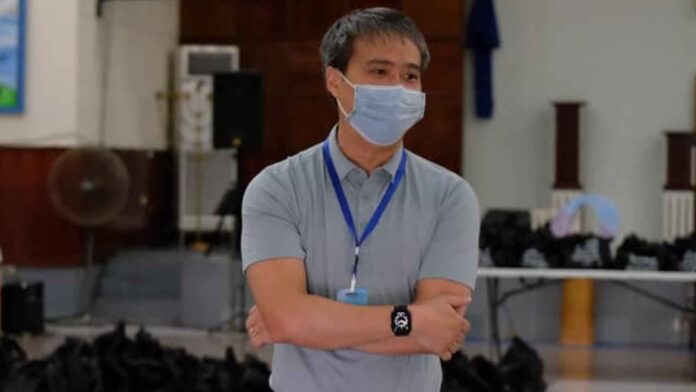The Department of Social Welfare and Development (DSWD) should not dissuade grass roots fund-raising activities by individuals seeking to help indigent members of their communities, saying that these efforts help expand the coverage of government-funded relief, according to Senator Joel Villanueva.
Instead of threatening to run after people behind fund-raising activities on social media, Villanueva suggested that the department extend leniency from the prevailing regulation and let grass roots fund-raising drives secure the necessary permits after the government has lifted the enhanced community quarantine in Luzon.
The gesture, which Villanueva said is in line with the spirit of the Bayanihan Law, will likewise help provide legal cover for these relief efforts which the lawmaker described as rooted in the Filipinos’ “good-natured community fellowship.”
“Lahat po ng ating kababayan, nais tumulong sa kapwa natin na nagigipit dahil sa krisis na dala ng COVID-19. Hindi po natin maaalis ito sa ating kamalayan, kaya po hinihiling natin sa DSWD na kung maaari, tumulong gawing legal ang mga fund-raising efforts na ganito,” said Villanueva in a statement. “Imbis na takutin ang mga tao gamit ang batas, kalingahin na lang po natin ang mga nais tumulong sa pamamagitan ng pagbigay ng tamang payo sa proseso.”
“Ngayong panahon ng krisis, mas nangangailangan tayo ng tulong at pinapakita ng bawat fund-raising drives na ito, na kadalasan ipinaaalam sa pamamagitan ng social media, na handa ang ating mga kababayan na mag-ambag sa kahit na anong halaga upang tumulong sa kapwa,” continued the lawmaker, chair of the Senate Committee on Labor, Employment, and Human Resource Development.
Villanueva said he understood clearly what the law, Presidential Decree No. 1564 or the Solicitation Permit law, was trying to achieve, which is to regulate fund-raising activity and prevent nefarious individuals from defrauding others.
But the crisis brought by COVID-19 has made it harder for government to reach out quickly to the vulnerable, that’s why some people are helping out others in the most expedient way possible, the lawmaker explained.
“We hope the DSWD considers helping these individuals or groups by providing legal cover to their fund-raising efforts, instead of discouraging future efforts to provide relief to those who need our help,” Villanueva said.
Among the requirements under the law’s implementing rules and regulations is the need to have the documents notarized. Since notary services are not readily available during this time, Villanueva said the DSWD could instead grant these individuals a 30-day grace period once the quarantine is lifted for them to submit all requirements.
The lawmaker cited Section 4(ee) of the Bayanihan law which authorizes “undertaking such other measures reasonable and necessary to enable the President to carry out the declared national policy subject to the Bill of Rights and other constitutional guarantees.”
In the meantime, Villanueva also called on the DSWD to launch a massive information drive on the Solicitation Permit Law, establish an online filing system, streamline the application process and requirements, and expedite the approval process, instead of the average three-day turn-around time of DSWD. In times of crisis, Villanueva noted, there is no time for delay, and bureaucratic processes should not hamper the Filipinos’ bayanihan spirit.


